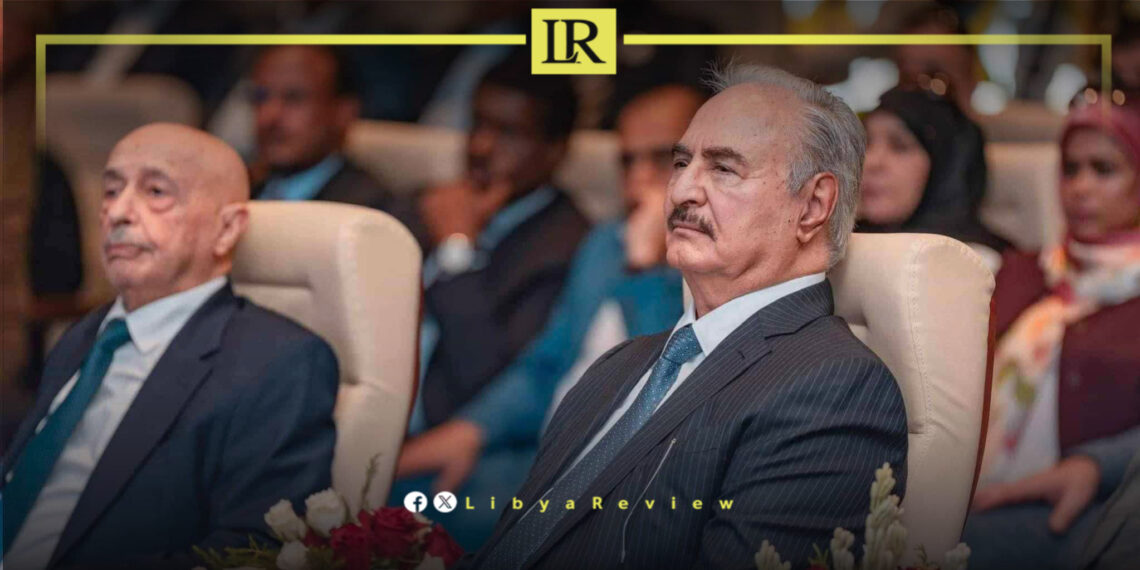On Thursday, Field Marshal Khalifa Haftar, commander of the Libyan National Army (LNA), vowed to drive development and restore stability across Libya, prioritizing the neglected southern regions.
Speaking at the First Conference on the Reconstruction of the South in the city of Sebha, Haftar emphasized that southern Libya would be at the forefront of his efforts in the coming period.
“We will achieve development and stability in Libya, and the south will be our priority,” Haftar declared in his address, underscoring the strong popular support for his forces, particularly in the south. His comments reflect a broader commitment to addressing the long-standing issues of neglect and underdevelopment in this strategically important region.
The conference attracted key political and military figures, including Aguila Saleh, Speaker of the House of Representatives, Chief of Staff of the Libyan National Army (LNA), Abdel-Razek Al-Nathouri, Osama Hammad, the Parliament-designated Prime Minister, and Director of the Libya Development and Reconstruction Fund, Belgasim Haftar.
Their attendance underscored the event’s importance, signaling a unified effort to address southern Libya’s development needs.
Libya’s southern region, rich in resources but historically overlooked, has faced decades of neglect, lacking essential services like healthcare, education, and infrastructure. This has made it a hotspot for smuggling, human trafficking, and militia activity. Haftar’s pledge to prioritize the south reflects his intention to stabilize the region and integrate it into national reconstruction efforts.
In his remarks, Ageela Saleh called for dialogue and cooperation among all Libyan factions to solve the country’s ongoing political crisis. He emphasized that developing and reconstructing various regions of Libya, including the south, would be a key focus in the coming years.
The south holds significant strategic importance for Libya, not only due to its natural resources, including oil and gas, but also because of its geographic location bordering countries like Chad, Niger, and Sudan. Control over this region is crucial for managing migration routes and trade, yet it remains one of the most underdeveloped parts of the country.
Haftar’s forces maintain a strong military presence in the area, and his speech signals a new push to bring economic and social improvements to a long-neglected part of Libya.


